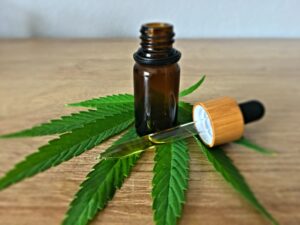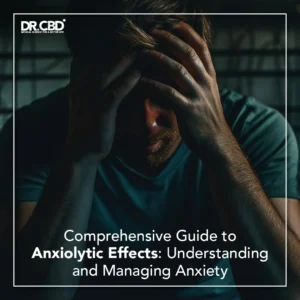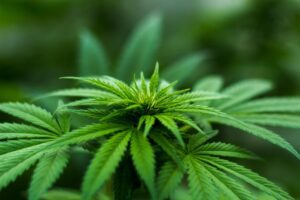As CBD gains popularity due to its potential health benefits and therapeutic properties, it’s natural for misconceptions and myths to be prevalent among consumers. It’s crucial to separate fact from fiction when considering CBD use to make educated choices about what might be suitable for your well-being needs.
By debunking these misconceptions, we empower you to make informed decisions and explore the potential advantages CBD may offer to enhance your physical and mental well-being. Join us as we delve into the core of these myths and discover the truth behind CBD and its potential health benefits.
1. Myth: CBD Use Will Get You High
One of the most common misconceptions about CBD is that it produces a psychoactive “high” like its cannabinoid cousin, THC. The fact is that CBD does not possess intoxicating effects and is non-psychoactive. This distinction allows individuals to benefit from CBD’s potential therapeutic qualities without experiencing the mind-altering effects associated with THC.
2. Myth: CBD Is Illegal
The legality of CBD products varies depending on local regulations. In the United States, the 2018 Farm Bill legalised hemp-derived CBD containing less than 0.3% THC at a federal level. Regulations may differ internationally and even between states within the US, so it’s crucial to verify state-specific laws before purchasing or using CBD products. In the UK, CBD is legal as long as it contains less than 0.2% THC.
3. Myth: CBD Has No Scientific Basis for its Health Benefits
Contrary to this myth, a growing body of scientific research supports the potential health benefits attributed to CBD. For instance, numerous studies document CBD’s potential in treating chronic pain, anxiety, epilepsy, and sleep disorders.
While further research is necessary to understand the full scope of CBD’s medical potential, current findings reveal a promising outlook for various conditions, including chronic pain, sleep disorders, neurological disorders, and mental health problems.
4. Myth: All CBD Products Are the Same
An array of CBD products with varying concentrations, formulations, and quality standards exists in the market. Various factors can contribute to differences between CBD products, such as:
a. Source: Hemp-derived CBD differs from marijuana-derived CBD due to its THC content. Hemp-derived CBD typically contains little to no THC, making it legal in many jurisdictions, whereas marijuana-derived CBD often contains higher levels of THC, resulting in legal restrictions.
b. Extraction Method: CBD extraction methods can impact a product’s purity, potency, and overall quality. Reputable manufacturers often use methods like CO2 extraction or ethanol extraction to produce high-quality CBD, free of impurities and contaminants.
c. Full-Spectrum, Broad-Spectrum, or CBD Isolate: CBD products can be categorised as full-spectrum, broad-spectrum or isolate. Full-spectrum CBD contains all naturally occurring compounds in the hemp plant, including traces of THC. In contrast, broad-spectrum CBD contains all hemp plant compounds except THC. CBD isolate products consist of pure CBD, without any other cannabis compounds.
d.Third-Party Lab Testing: Choosing a product with third-party lab testing ensures that it meets quality, potency, and safety standards. It confirms the CBD product’s contents and verifies the absence of contaminants.
5. Myth: CBD Is a Miracle Cure
While CBD does offer potential therapeutic benefits, it is crucial to approach it with realistic expectations. CBD is not a one-size-fits-all solution, and individuals may experience varying effects based on factors such as dosage, individual body chemistry, and underlying conditions. Additionally, ongoing research is required to establish definitive therapeutic uses for CBD and understand its scope fully.
6. Myth: CBD has No Side Effects
CBD is generally regarded as safe and well-tolerated. However, some mild side effects may occur, such as drowsiness, dry mouth, or diarrhoea. Additionally, CBD may interact with certain medications, so it’s essential to consult a healthcare professional before using CBD, especially when taking prescription drugs.
7. Myth: Higher CBD Doses Are Always Better
When it comes to CBD dosing, the appropriate dosage may vary based on factors such as weight, metabolism, individual biochemistry, and the desired therapeutic effects. In some cases, smaller doses can provide the same or even better results than larger doses. A “start low and go slow” approach is recommended, gradually increasing the dosage until the desired effect is achieved. Consulting a healthcare professional is advisable when starting CBD supplementation to establish an optimal dosage for individual needs.
Discover the Truth about CBD with Dr. CBD Innovation Center
Debunking myths and misconceptions surrounding CBD is essential to understanding the true potential of this remarkable cannabinoid. By dispelling these common misunderstandings, individuals can make well-informed decisions about incorporating CBD into their wellness routines and reap the potential benefits for chronic pain, sleep disorders, neurological conditions, and mental health.
Dr. CBD Innovation Center is a leading provider of reliable, high-quality, and extensively tested CBD products, committed to helping you navigate the world of CBD with ease and confidence. Browse our range of high-quality CBD products and access expert insights to make the most of your CBD experience. Embark on your personalised wellness journey with Dr. CBD Innovation Center today.





